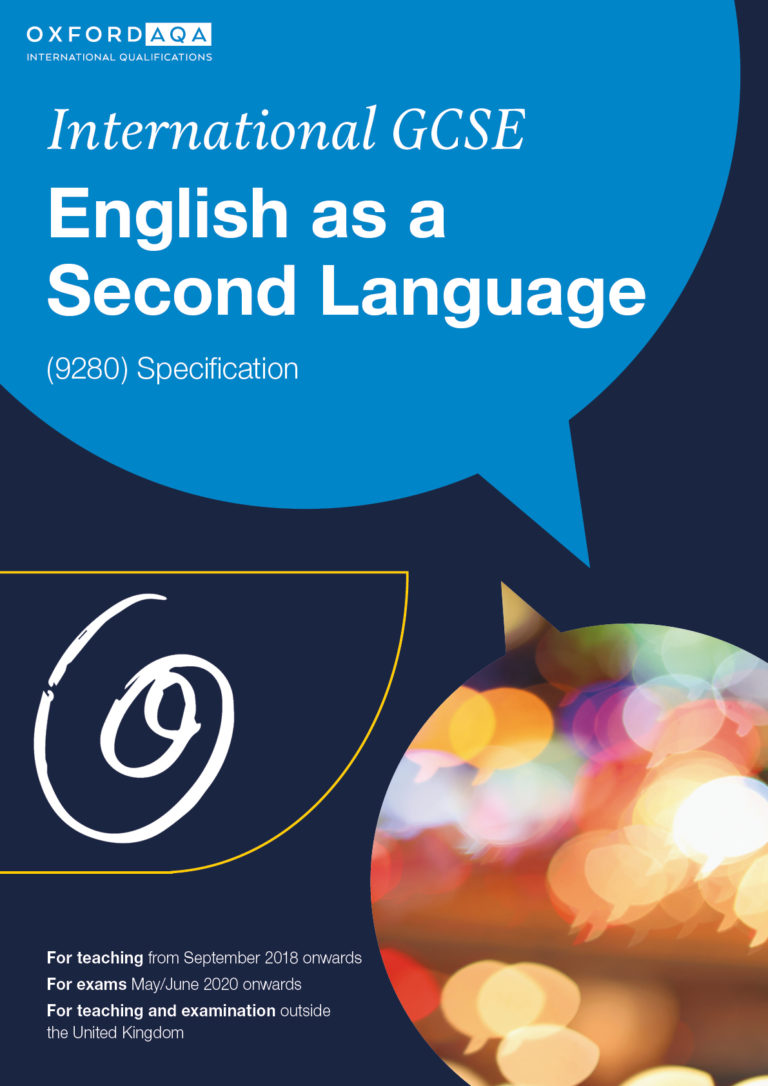
Enable your students to develop the four essential English language skills of reading, writing, listening and speaking.
This International GCSE is designed for students whose first language is not English, but who use English for their studies. Students will read, understand and analyse a variety of texts, presented in different styles and covering a range of topics, including factual and literary texts.
The course will support students of all abilities to write and communicate clearly, coherently and accurately using varied vocabulary and sentence structures. It develops the skills necessary for effective communication in their further study or career.
- Separate papers give students more opportunity to highlight their ability.
- Each paper has a distinct identity to better support high-quality and engaging teaching and learning.
- Our qualification recognises the importance students place on verbal communication in English, which is why the speaking component is an integral part of the award. 20% of the qualification focuses on the assessment of speaking skills.
International GCSE English as a Second Language (9280)
View the switching guide to see the differences between your old International GCSE English as a Second Language specification and the OxfordAQA specification (version updated November 2022).
OxfordAQA International GCSE English as a Second Language covers the following topics:
Identity and culture
- Me, my family and friends
- Technology in everyday life
- Free-time activities
Local, national, international and global areas of interest
- Home, town, neighbourhood and region
- Social issues
- Global issues
- Travel and tourism
Current and future study and employment
- My studies
- Life at school/college
- Education post-16
- Jobs, career choices and ambitions
Assessment Objectives:
The assessment comprises four papers: the first is a reading paper and the second is a writing paper, each of which provide separate tasks; the third is a listening paper that uses recorded monologues and dialogues; and the fourth is a spoken language (oral) element that provides students with an opportunity to show their language skills.
- AO1 Reading: Understand and respond to written language
- AO2 Writing: Communicate in writing
- AO3 Listening: Understand and respond to spoken language
- AO4 Speaking: Communicate and interact in speech
We made changes to the assessments of International GCSE English as a Second Language in 2021, These were made following feedback from OxfordAQA teachers in order to support our commitment to Fair Assessment. Details of the changes to International GCSE ESL can be found here.
OxfordAQA provides all the resources and advice you need to teach the International GCSE English as a Second Language specification effectively.
- Download the specification
- Read our switching guide
- View our training courses to help you deliver OxfordAQA International GCSE English as a Second Language
- Approved textbooks and resources published by Oxford University Press
- Download instructions on conducting the International GCSE English as a Second Language Speaking test
- View our guidance on conducting the International GCSE English as a Second Language Listening test
We have too many resources to list here, so please visit our resources area for teachers to see them all, including:
- Schemes of work to allow you to plan how to deliver the specification in a way that will best suit you and your students
- Teaching guidance to outline clearly the scope of teaching and learning
- Topic tests and mock exam analysers to allow you to track your students’ progress throughout the teaching year
Paper 1 – Reading:
- 1 hour 15 minutes
- 60 marks
- 30% of GCSE
Paper 2 – Writing:
- 1 hour 15 minutes
- 60 marks
- 30% of GCSE
Paper 3 – Listening:
- 45 minutes
- 40 marks
- 30% of GCSE
Paper 4 – Speaking:
- 10 minutes, plus time to prepare
- 40 marks
- 20% of GCSE
Re-sits
- Linear specification; individual components may not be re-sat.
- Candidates can re-take the whole qualification as many times as they wish
- Results for the non-exam assessment (NEA) component (speaking unit) can be carried forward for the life time of the specification.
- You only need to make one entry for each qualification – this will cover all the question papers, non-exam assessment and certification.
Take a look at:
- A case study from Osama, an ESL teacher in Egypt, and his experience of switching
- A case study from Eman, an ESL teacher in Egypt, and her experience of switching
- The OxfordAQA International GCSE English as a Second Language switching guide
- Example specimen exam paper and mark scheme
You must be an approved OxfordAQA centre to enter students for our exams. Make sure you become an OxfordAQA centre before you start teaching a course.
